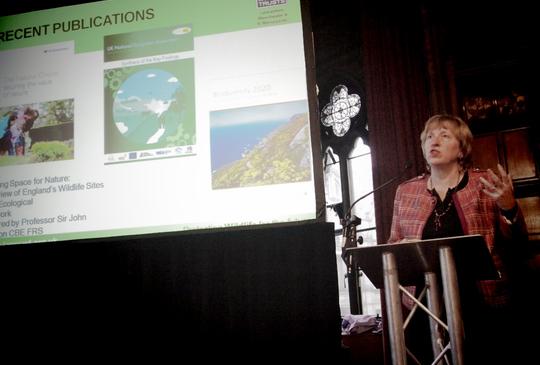
Greater Manchester - the Natural Capital
From the peat bogs of Salford in the west, to the moors of the Pennine fringe in the east, Greater Manchester has a diverse range of natural assets and the meeting, which was held at the Town Hall, considered some of the best ways to conserve them, and support local biodiversity.
A key body in this campaign is the new Natural Capital Group, which has been established to deliver the GM Local Nature Partnership and importantly is embedded within the city’s Low Carbon Hub.
Chaired by Anne Selby, chief executive of the Wildlife Trusts of Lancashire, Manchester and North Merseyside, explained that it was ‘time to make nature matter,’ arguing ‘that it had been invisible for too long.’
However, it was no longer simply a case of doing the right thing, she said, with issues such as the plight of the honey bee, and it’s crucial role in pollinating crops, and the role of the landscape in preventing flooding, showing the loss of biodiversity also impacted on human lives.

The important economic aspect of protecting biodiversity was also becoming more apparent, explained Professor David Hill, deputy chair of Natural England.
He explained that as much as 40% of global GDP relied on natural capital – “but we don’t measure the importance of the environment to business success,” he said. “We need to understand how nature impacts on the economy.”
"We don’t measure the importance of the environment to business success."
Big corporations, he added, were already looking at the importance of ecosystems and possible scenarios for their businesses should they ultimately collapse. “The ones who don’t get the message will disappear,” he warned.
More controversially Hill also spoke about bio-diversity offsetting, a new Government strategy which supporters claim will help both businesses, developers and nature.
Hill is also chairman of the Environment Bank, the private body charged with bringing the plans forward, and a key apart of his argument was that it was an important step in putting a true financial value on nature.
Opponents, however, argue that the plan doesn’t take into account the delicate balance of nature, and that while it may be possible to replace a pond or young copse of trees, how could developers cut down an ancient woodland or build over a flower meadow and then replace them to the same high level of biodiversity?
Contributor Profile
Mark Hillsdon is a freelance writer with a passion for nature and the great outdoors. A regular contributor to magazines such as Coast and CountryFile, he also writes on sustainability for the Guardian, and the occasional travel piece for the Independent. On Sunday. He has also been writing on all things Mancunian since first getting off the Euston train as a student nearly 30 years ago.

